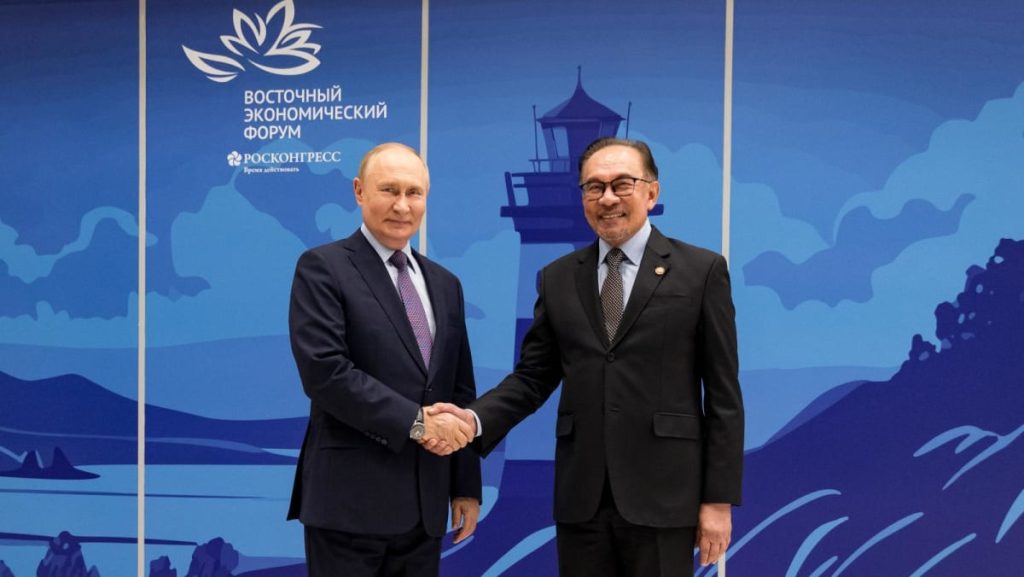Malaysian Prime Minister Anwar Ibrahim emphasized the importance of the ASEAN-Russia partnership in his speech at the 9th Eastern Economic Forum in Vladivostok. He highlighted the need for economic growth, security cooperation, and cultural exchange across the region. Mr. Anwar’s meeting with Russian President Vladimir Putin further solidified Malaysia’s role in ASEAN, as it prepares to assume the chairmanship in 2025. The Russian president expressed hope for increased cooperation with ASEAN under Malaysia’s leadership during their bilateral meeting.
During his visit to Russia, PM Anwar invited President Putin to attend next year’s ASEAN Summit, which will be chaired by Malaysia. He also accepted an invitation for Malaysia to participate in the upcoming BRICS summit in October, signaling the growing ties between the two countries. This move towards closer cooperation with Russia could potentially stir uneasiness among some ASEAN members and their dialogue partners, including the United States and other western countries.
Mr. Anwar’s decision to strengthen ties between ASEAN and Moscow follows meetings between President Putin and various leaders from the region. Geopolitical experts believe that Russia’s foreign policy aims to increase engagement with countries in the Global South, including Asia, Latin America, and Africa. By positioning itself as a leader in developing countries, Russia could potentially reduce Western influence in the region. However, some ASEAN members like Singapore and the Philippines, who have traditionally been close to the US, may be wary of Russia’s increased involvement in Southeast Asia.
Despite potential concerns from certain ASEAN countries, Mr. Anwar praised President Putin for his leadership and expressed confidence in the decision to visit Russia. The invitation to the BRICS summit and discussions on closer cooperation with Russia mark significant steps towards Malaysia’s goal of joining the organization. Russia’s efforts to engage with Southeast Asian countries not only aim to balance US and Western influence in the region but also signal a shift towards stronger relations with developing countries.
In conclusion, Malaysian Prime Minister Anwar Ibrahim’s visit to Russia and discussions with President Putin have highlighted the growing ties between Malaysia and Russia. The invitation to attend the ASEAN Summit and participation in the BRICS summit signify a step towards greater cooperation between the two countries. While these developments may cause uneasiness among some ASEAN members, the potential for increased partnership with Russia could provide opportunities for economic growth and security cooperation across the region. Russia’s efforts to engage with Southeast Asian countries reflect a broader shift in its foreign policy towards the Global South and away from traditional Western alliances.


